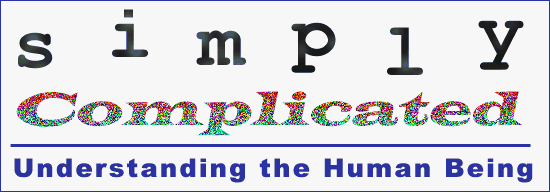Settling Their Differences
Because their differences can mean conflict, humans have devised various means for settling their differences peaceably.
For example, some humans have a saying: "Do to others as you would have them do to you."
The basic idea is clear: They know how it feels to be treated badly and they don't like it. So they shouldn't make anybody else feel like that.
This idea can be found in many cultures and in many religions on Earth. No matter what the group, its members have to get along; they have to cooperate. They must learn their common strengths and weaknesses. So this saying is social advice on how they
should view each other's feelings.
It is simple advice, but like most things concerning human beings, it is also complicated. For it to work, the humans involved must be more aware of each other's feelings than their own.
You want to do something nice for another person. You think: "I like this myself. I would like it if somebody did this for me. So I will do this for them." It is a gift from you to them. A gift you would like receiving yourself. And you feel good about it.
But what if the other person doesn't particularly like what you like. How much better it is if the gift is something the other person likes. Not only have you treated them kindly, you have also considered what they like, not just what you like.
The key is to understand that other people may have the same feelings as you, but that other people aren't exactly like you. You must stand outside yourself and know that their world can be different from yours. And that their world isn't necessarily wrong and yours right....it is just different.
Such an awareness breeds tolerance, and tolerance is the keystone of group living, whether it is as a couple, a family, a clan, a team, or in any situation involving more than one person.
It is easy for them to like something or someone; it is difficult for them to tolerate that which they do not like.
Considering that even good intentions can lead to conflict, it is easy to understand just how near to discord humans walk every day.
Because they are made the way they are, conflict is inevitable. Not only is it basic to their relations with other humans, it goes on within each of them as well.
Deep within each individual are demands to eat (hunger), rest (sleepiness/fatigue), reproduce (sexual arousal), among others. These demands are part of them, part of what keeps them alive. Every living thing has similar demands it must respond to. When two of these demands occur at the same time -- hunger and fatigue, for example -- there is conflict. And every individual feels the pull of inner demands that run counter to each other.
Humans, like many species, also have inner demands to group together. This too is for survival; working with others increases the likelihood that an individual can successfully produce food, defend against attackers, create and raise offspring, and so
forth.
Next Chapter
Title Page

